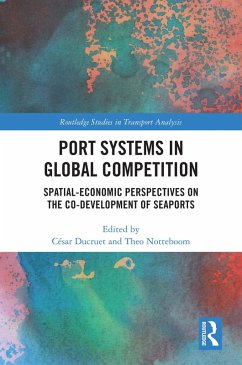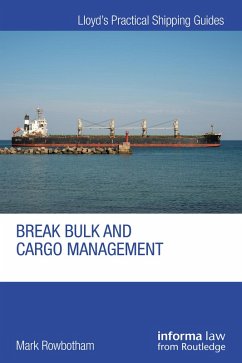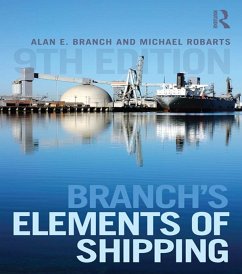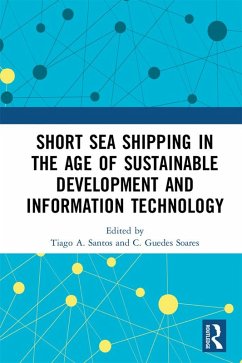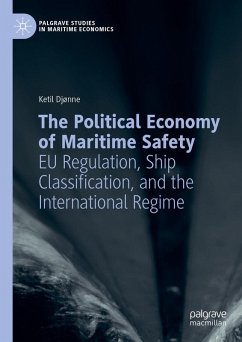
The Dynamics of Short Sea Shipping (eBook, PDF)
New Practices and Trends
Versandkostenfrei!
Sofort per Download lieferbar
72,95 €
inkl. MwSt.
Weitere Ausgaben:

PAYBACK Punkte
36 °P sammeln!
This book belongs to the Port Economics and Global Supply Chain Management strand of the Palgrave Studies in Maritime Economics book series, commissioned by Hercules Haralambides. This book discusses the main drivers that affect the introduction and growth of short sea shipping services. It describes and analyses the main operational concepts of short sea shipping and introduces relevant administrative and strategic approaches that enable its sustainable execution. Short Sea Shipping (SSS) comprises freight and passenger mobility by waterborne transport at a limited range, without crossing an ...
This book belongs to the Port Economics and Global Supply Chain Management strand of the Palgrave Studies in Maritime Economics book series, commissioned by Hercules Haralambides.
This book discusses the main drivers that affect the introduction and growth of short sea shipping services. It describes and analyses the main operational concepts of short sea shipping and introduces relevant administrative and strategic approaches that enable its sustainable execution. Short Sea Shipping (SSS) comprises freight and passenger mobility by waterborne transport at a limited range, without crossing an ocean. Being a direct competitor to land-based transport modes, it uses ports and inland waterways to complement traditional transportation systems, increase capacity, improve flexibility, and contribute towards the goal of sustainable mobility. The reader will be introduced to various aspects of short sea shipping including benefits and shortfalls, relevant regulations and policies, and the applicability of short sea services within a given case or scenario.
Dieser Download kann aus rechtlichen Gründen nur mit Rechnungsadresse in A, B, BG, CY, CZ, D, DK, EW, E, FIN, F, GR, HR, H, IRL, I, LT, L, LR, M, NL, PL, P, R, S, SLO, SK ausgeliefert werden.
Alle Preise in Euro und inkl. der gesetzl. MwSt. | Innerhalb Deutschlands liefern wir preisgebundene Bücher versandkostenfrei. Weitere Informationen: bitte hier klicken
Support
Bitte wähle dein Anliegen aus:
Rechnungen
Bestellstatus
Retourenschein
Storno




